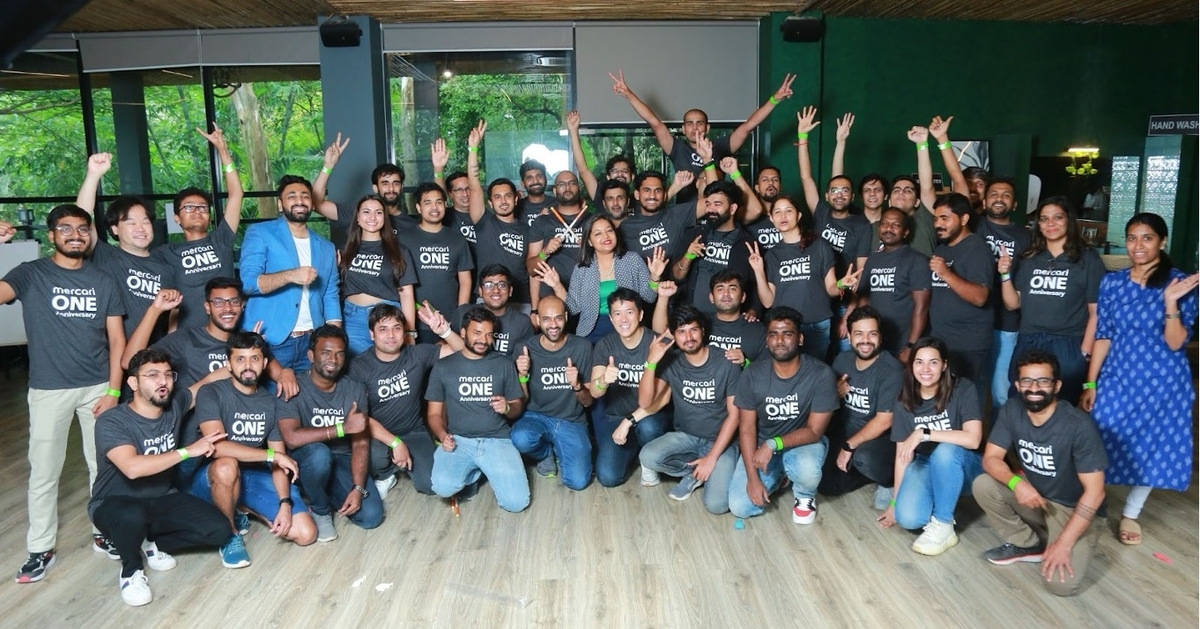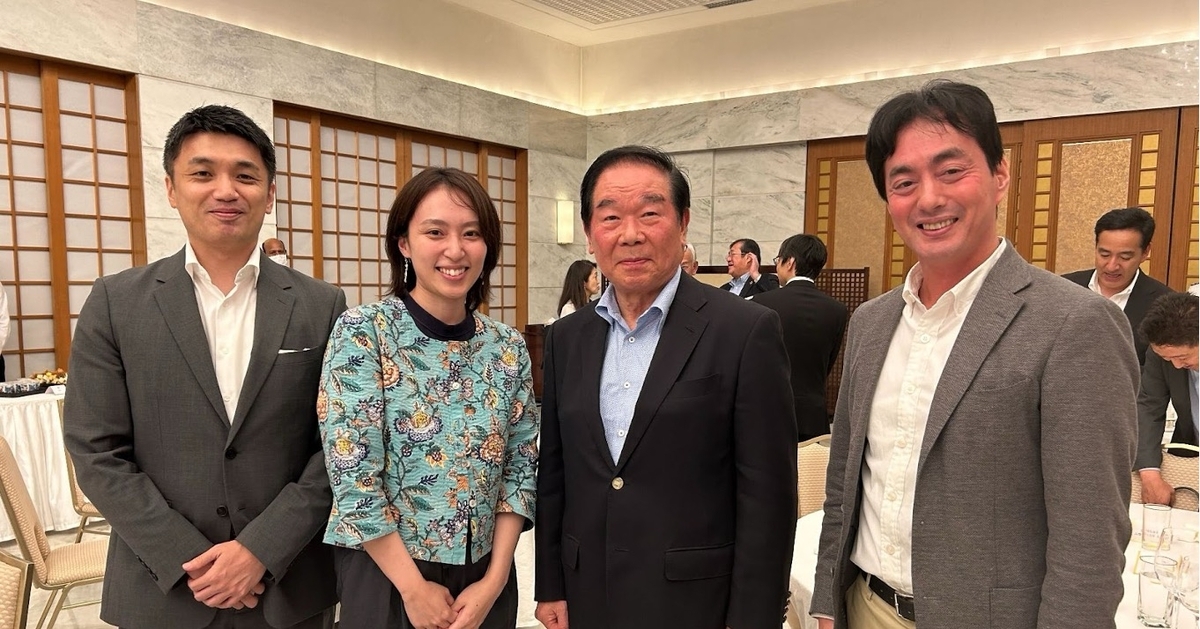
In the last week of July, 2024, Japan’s House of Representatives Speaker Fukushiro Nukaga visited India and met with Prime Minister Modi. Nukaga was joined by a delegation of parliament members and business leaders of Japanese companies that have expanded into the Indian market. The week-long visit provided an opportunity for networking and knowledge sharing, and emphasized the strengthening of India-Japan relations.
In this article, Kayo Osumi, a member of the Mercari India Engineering Office, will report on a series of projects, discuss what we've learned from them, and share what's in store for the future
Background and Purpose of Nukaga’s Visit
The visit stemmed from a mutual desire to forge stronger economic cooperation, investment, and worker movement between Japan and India. Particularly in terms of workers, by around 2030, Japan is expected to see a shortage of some 790,000 IT workers. Creating connections with the large number of talented IT professionals in India to help solve this problem in Japan is an urgent mission for the government.
India is known as one of the biggest technology talent hubs in the world. Japan hopes to deepen connections with India in a wide range of sectors, such as employment and study abroad programs, and this visit was a prime opportunity to further promote worker mobility between the two nations.
Mercari’s Role

Mercari first saw the real benefit of hiring Indian talent during its global hiring initiative in 2018. During this initiative, Mercari hired around 40 new grads from around the world, of whom the majority—29 in total—were graduates of the Indian Institutes of Technology. Mercari has continued to hire new graduates and mid-career engineers from India, resulting in a significant rise in the number of Indian employees at the company. This reflects the broader trend of growing numbers of Indian IT professionals worldwide.
Additionally, 2022 saw Mercari establish a development hub in Bangalore and strengthen talent acquisition to increase the scale of its engineering activities. In light of this development, Mercari was invited to join the visit as part of the delegation, and this gave Nukaga the opportunity to visit Mercari's Bangalore office.
House of Representatives Speaker Nukaga’s Visit to Mercari’s Indian Office

On July 31, Nukaga, Japan's Speaker of the House of Representatives, and members of the Japanese Diet visited Mercari’s Indian Office in Bangalore. During the visit, we had a discussion about Mercari’s history of hiring Indian talent and the state of India’s labor market. Nukaga provided particularly deep insight into what kind of support the Japanese government can provide to accelerate the acquisition of Indian talent in Japan going forward.

Vish, the CEO of Mercari’s India office, gave a presentation about US companies that had previously worked to improve India’s visa system and labor conditions when companies first started to expand into India. He also presented information about the need for comprehensive government support when establishing companies, making various approvals, and attaining compliance. Carlos, our managing director, talked about the importance of mindset in terms of not over-planning and treating mistakes as opportunities to learn.
Between networking sessions, we made proposals to Nukaga and the other delegates about worker movement between Japan and India and about lowering taxes for organizations conducting development and business in India, as well as other improvements to employment-related issues, highlighting some of the challenges startup companies face.
Meeting Modi: 50,000 Employees Between Nations!
After Bangalore, the next stop on the tour was New Delhi for a meeting with Prime Minister Modi and Subrahmanyam Jaishankar, the Minister of External Affairs of India. Mercari CEO, Shintaro Yamada, joined the meeting with Prime Minister Modi.

Prime Minister Modi made a proposal for a new bilateral policy to facilitate the movement of at least 50,000 IT professionals between Japan and India over the next five years. On the topic of hiring for startups, Shintaro had the opportunity to share information about talent acquisition at Mercari, and exchanged ideas with Modi about the problems the company is currently facing and specific plans for further promoting Japanese companies in India.
Networking with Japanese Companies and Factory Tours
As a Japanese company expanding into India, Mercari was given the opportunity to join this visit to India and network and share information with Japanese companies in other industries that are also breaking into the Indian market. We were also able to join factory tours at Maruti Suzuki and Denso in Manesar as representatives of Mercari.

Maruti Suzuki was the first Japanese company to branch out into India and has an impressive history in the country, having created tens of thousands of jobs all across India over the past 40 years. Maruti Suzuki is expected to experience accelerated growth in line with the growth of the Indian market. The factory tour gave us the invaluable experience of seeing a real-life production line and watching the process of assembling a single vehicle from hundreds of small parts.
At the Denso factory, which grows in tandem with increased demand from Maruti Suzuki, a rigorous Japanese-style parts management system was in place, and Indian personnel were being trained in multiple disciplines. This was an opportunity for us to once again appreciate the strength of Japanese manufacturing companies.
Where India Is Headed and What Mercari Can Achieve
During the week-long visit to India, we were able to share ideas with Nukaga and the members of the Diet at Mercari’s office in Bangalore, and we were also able to meet with Prime Minister Modi and network with Japanese companies in other industries. These experiences were all great learning opportunities for the Mercari team. Having overseen Mercari’s initiative to hire and provide orientation for overseas new graduates starting in 2018, and the establishment of our Bangalore office, this visit felt like a culmination of what we have achieved so far and the beginning of a new trend that gives me great hope for the future relationship between the Japanese and Indian governments. Lastly, I’d like to summarize the experience of the Mercari team as a whole.
Japan-India Alliance: Strong Focus Remains on Startup Talent Acquisition

At the meeting with Speaker Nukaga and Prime Minister Modi, we took a deep dive into the topic of talent acquisition, particularly the topic of hiring Indian engineers at startup companies. As a business with first-hand experience in this area, Mercari was able to share some of the initiatives the company has taken and the problems we have faced. These meetings cemented our belief that hiring Indian engineers will continue to be a large focus for Japanese companies in the future.
Respect and Solidarity Between World Challengers
Being able to network with Japanese companies that have a presence in India but operate in other industries was a valuable asset for us. Each company had the desire to take on India in their own way, and there was a certain sense of camaraderie as we exchanged stories; their excitement was palpable. People from companies larger than Mercari and people with a wealth of career experience talked about taking bold risks and challenges, which was extremely motivating. It was a good chance for us to look back at what we’ve done, and made us realize that there is a lot more that we can do.
This Is Just the Beginning, and We Want To Show What We Can Do!

Looking back on our history of hiring Indian engineers, and compared to Japanese companies in other industries, Mercari is only beginning its story in India. However, considering where both Japan and India are now, I feel that it is very important for us to give people insight into our talent acquisition as a Japanese startup. While there are still things we need to try and things we need to improve, I believe that it is vital for us to share our experiences, including policy proposals, with the industry to act as a role model for Japanese startups that want to hire Indian engineers.
I would like to express my heartfelt thanks to everyone involved in this visit for their extensive support. Mercari will continue to strive to promote the movement of talent between Japan and India, and I look forward to everyone’s continued cooperation.
- Kayo Osumi
